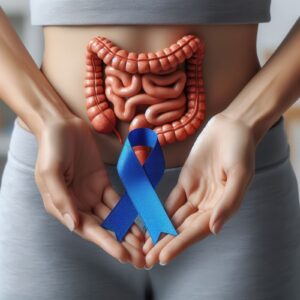The experience of being diagnosed with cancer can evoke feelings of being overwhelmed, and undergoing treatment frequently presents a range of obstacles, such as fluctuations in energy levels, flavor preferences and appetite. Adequate nutrition throughout the course of cancer treatment is vital for bolstering the body’s resilience, mitigating adverse effects, and promoting general health. This blog will provide insightful advice on what to consume while undergoing cancer treatment in order to ensure that your body is effectively nourished.
Concentrate on nutrients-rich foods:
Your body requires an increased quantity of nutrients than usual during cancer treatment in order to promote healing and sustain energy. Choose foods that are rich in nutrients, including vegetables, fruits, whole cereals, lean proteins, and healthy fats. These foods are rich in vital vitamins and minerals that are necessary for optimal bodily function.
Remain Hydrated:
Maintaining adequate hydration is of utmost importance, but it is particularly critical for individuals undergoing cancer treatment. Certain adverse effects may be exacerbated by dehydration, including fatigue and nausea. Maintain a consistent water intake throughout the day. Consider adding flavor to plain water with fruit slices or herbal beverages before consuming it.
 Adapting to Variations in Palette:
Adapting to Variations in Palette:
Chemotherapy and other cancer treatments have the potential to alter one’s sense of taste, diminishing the allure of specific foods. Determine which flavors and textures appeal to you by conducting experiments. Explore the use of novel herbs, seasonings, or marinades to augment the flavor of your dishes. If heated foods are unpleasant, cold or room-temperature foods might also be more conducive to tolerance.
Protein as a Strengthener:
During cancer treatment, it is vital to preserve muscle mass, and protein is an essential component in this process. Incorporate into your diet lean sources of protein, including poultry, fish, eggs, dairy products, legumes, and tofu. Greek yogurt, nuts, and cheese are examples of protein-rich foods that can be utilized conveniently to meet protein requirements throughout the day.
Frequent, Small Meals:
During treatment, it may be difficult to consume large meals; therefore, you should consider consuming smaller, more frequent refreshments in place of meals. This method may be utilized to alleviate discomfort and sustain a consistent nutrient intake. Substantiate for nutrient-dense treats such as hummus-topped whole grain crackers, trail mix, or yogurt with granola.
Fiber for Digestive Health:
Certain cancer treatments have the potential to induce digestive system disturbances, such as diarrhea or constipation. Consisting of a diet abundant in fiber, such as fruits, vegetables, whole grains, and legumes, can be beneficial for digestive health. Nevertheless, it is critical to seek guidance from your healthcare team, as certain patients may require a restriction on fiber consumption in accordance with their unique treatment regimen.
Supplements, if required:
Cancer treatments may, in certain instances, impair the body’s capacity to assimilate nutrients from diet. Supplementary measures may be advised by your healthcare team in order to remedy particular deficiencies. Before taking any supplements, it is imperative that you consult your healthcare provider to ensure that they are safe and suitable for your specific requirements.
Practicing Mindful Eating:
Providing emotional and psychological support is a critical component of cancer treatment. Engage in mindful dining by directing your attention towards the bodily signals of hunger and fullness. Ensure a serene and comfortable dining atmosphere to enhance the overall dining experience. Participate in joyful activities in order to elevate your emotions.
Conclusion
Effective nutrition management during cancer treatment necessitates adaptability and a customized strategy. Maintain communication with your healthcare team, pay attention to your body, and make necessary adjustments. Enhance overall well-being and provide support to the body during cancer treatment by incorporating nutrient-dense foods, maintaining adequate hydration, and adjusting to changes in flavor. It is crucial to bear in mind that each modest yet nourishing decision enhances one’s fortitude and durability throughout this endeavor.




